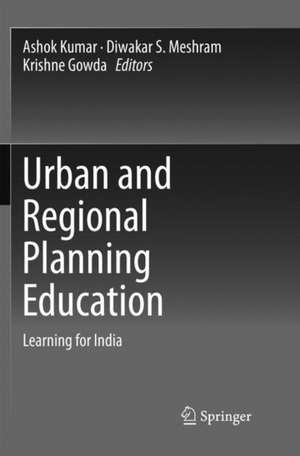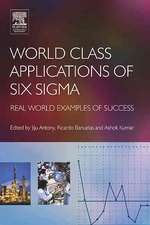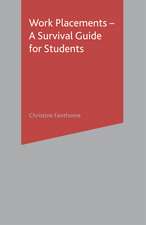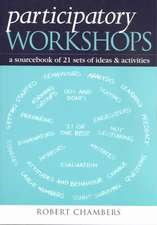Urban and Regional Planning Education : Learning for India
Editat de Ashok Kumar, Diwakar S. Meshram, Krishne Gowdaen Limba Engleză Paperback – 26 mai 2018
This is the first volume exclusively dedicated to planning education, with a focus on India and learning from global experiences for India. Prior to the 1990s, planning education in India was largely confined to national and local economic concerns. Within a globalized scenario, such pedagogies and theories have become outmoded. With new concerns emerging in planning, new pedagogical tools and theorizations need to be developed within planning curricula to provide today’s planners with the wherewithal to adapt to changing and globalizing cities and regions in India. Therefore, the eminent contributors to this volume deal exclusively and comprehensively with planning education in a globalized context. Divided into four thematic sections, this volume provides a comprehensive view of planning education in India, with focus on:
• The trajectory of planning education in India.
• The kinds of knowledge used for teaching in Indian planning schools, and whether some sort of integration of diverse knowledges is achieved.
• The ethical foundations of urban and regional planning in Indian planning schools.
• The role of international planning perspectives in providing new insights for Indian planning education.
Comprehensive and topical, this volume is of interest to academics and researchers from planning institutes, urban and regional planners and policy makers, as well as architects, social geographers and economists.
| Toate formatele și edițiile | Preț | Express |
|---|---|---|
| Paperback (1) | 787.85 lei 38-44 zile | |
| Springer Nature Singapore – 26 mai 2018 | 787.85 lei 38-44 zile | |
| Hardback (1) | 809.40 lei 38-44 zile | |
| Springer Nature Singapore – 9 mai 2016 | 809.40 lei 38-44 zile |
Preț: 787.85 lei
Preț vechi: 1036.63 lei
-24% Nou
Puncte Express: 1182
Preț estimativ în valută:
150.75€ • 164.27$ • 127.03£
150.75€ • 164.27$ • 127.03£
Carte tipărită la comandă
Livrare economică 19-25 aprilie
Preluare comenzi: 021 569.72.76
Specificații
ISBN-13: 9789811092084
ISBN-10: 9811092087
Pagini: 333
Ilustrații: XIX, 333 p. 48 illus., 10 illus. in color.
Dimensiuni: 155 x 235 mm
Greutate: 0 kg
Ediția:Softcover reprint of the original 1st ed. 2016
Editura: Springer Nature Singapore
Colecția Springer
Locul publicării:Singapore, Singapore
ISBN-10: 9811092087
Pagini: 333
Ilustrații: XIX, 333 p. 48 illus., 10 illus. in color.
Dimensiuni: 155 x 235 mm
Greutate: 0 kg
Ediția:Softcover reprint of the original 1st ed. 2016
Editura: Springer Nature Singapore
Colecția Springer
Locul publicării:Singapore, Singapore
Cuprins
Chapter 1: Introduction Ashok Kumar.- PART I: EMERGENCE OF URBAN AND REGIONAL PLANNING EDUCATION IN INDIA Chapter 2. Planning Education in India: A Historical Perspective D.S. Meshram and Swati Meshram.- Chapter 3. Modern History of Urban and Regional Planning Education in India Ashok Kumar.- Chapter 4. Planning Education for a Smart Urban India Rolee Aranya and Chetan Vaidya.- Chapter 5. Dynamics of Land Use Planning: A Planning Education Perspective Krishne Gowda, Mamatha P. Raj, and Sridhara, M.V.- Chapter 6: Scarcity of Planning Professionals and Need of Change in Planning Education and Practice Milind B. Patil.- PART II: EPISTEMOLOGIES OF URBAN AND REGIONAL PLANNING EDUCATION Chapter 7: An Exploration into the Multiplicity of Planning Knowledges Ashok Kumar.- Chapter 8: Teaching-Learning for Planning with Ecologies Shishir R. Raval.- Chapter 9: Positioning Urban Governance in Planning Pedagogy Tathagata Chatterji and Aparna Soni.- Chapter 10: Need for Paradigm Shift in Pedagogy for Teaching the Fundamentals of Planning Education Natraj Kranthi and Valliappan A.L.- Chapter 11: Integrating Planning Knowledges in Education to Improve Development of Indian Cities Champa, H.S. and Gayathri Viswanathan.- Chapter 12: Integrating Planning Knowledges: A case of HUDCO and a Way ahead for Better Planning Girish Karnad TG.- Chapter 13: Stakeholders’ Perspective of a Small River in Gujarat, India: What students can learn from Field Experiences of an Interdisciplinary Research Bhawana Vasudeva.- Chapter 14: Towards Making Town Planning Education as an Effective Tool of Change in Urban India Najammuddin and Ashutosh Joshi.- PART III: ETHICS IN URBAN AND REGIONAL PLANNING EDUCATION Chapter 15: Ethics in Planning Education in India Poonam Prakash.- Chapter 16: Ethics in Town and Country Planning Education in India – Trends and Future Prospects Abdul Razak Mohamed.- Chapter 17: Relationship between Ethics in Planning Education and Sustainable Urban Development Ravishankar, D., Krishne Gowda, and Sridhara, M.V.- Chapter 18: Silences in the Indian Planning Academy: Spatiality, Diversity and Participation Ashok Kumar.- Chapter 19: Imparting Inclusivity in the Process of Planning Education: Educating the Next Generation of Professionals through Participatory Learning Preeti Onkar Singh and Krishna Kumar Dhote.- Chapter 20: Value Education in Planning for an Effective Professional Outreach Srikonda Ramesh.- PART IV: INTERNATIONAL PERSPECTIVES ON PLANNING EDUCATION Chapter 21: The Place of Time in Planning Education John Minnery.- Chapter 22: Planning Education in an International Perspective: Making the Best from Global and Local Knowledges Raffaele Paloscia.- Chapter 23: Changing Context for Planning Education in the UK and the Prospects for Research-Led, Practice-Engaged Teaching Geraint Ellis, Brendan Murtagh, Lisa Copeland.- Chapter 24: Learning and Teaching Quality of Life Mapping: A Geographical Perspective Javier Martinez.- Chapter 25: Aligning Training of Town Planners with Local Realities: A Case of the Voluntary Service Overseas Programme to Strengthen Local Planning Capacity in Zambia Hemalatha M.C. and Peter Cockhead.- Chapter 26: Project-Based Learning in the Planning Education Program for Environmental Innovators in the Time of Climate Change Wangling Yan.- Chapter 27: Conclusions: Planning Education in India for the Future Ashok Kumar
Notă biografică
Ashok Kumar has been teaching undergraduate and postgraduate planning studentsat the School of Planning and Architecture, New Delhi since the last 23 yearsafter finishing his doctorate from the University of Liverpool, U.K. Widelyknown for his expertise in spatial justice, capabilities and planning, andcollaborative planning theory, Prof. Kumar has published nearly 100 papers innational and international journals, authored, edited, and co-edited 10 books,and contributed over 20 book chapters. Currently he is Editor of the ITPIJournal of the Institute of Town Planners, India. Previously he has been Editorof SPACE: The SPA Journal of Planning and Architecture published by SPA NewDelhi.
FormerlyChief Planner, Town and Country Planning Organization, New Delhi for more than12 years, Dr. D.S. Meshram has greatly influenced the planning profession inIndia since the last four decades. Currently Dr. Meshram is the President ofthe Institute of Town Planners, India. Prior to this Dr. Meshram has held theposition of Chairman of the All India Board of Town and Country PlanningEducation of AICTE for nine years when he got prepared the model curricula bothfor undergraduate and postgraduate planning education. For more than two yearsDr. Meshram was appointed Advisor (Urban Development) to Government of Uttarakhand.
Krishne Gowda is the Director at the University School of Design, University ofMysore, Karnataka since December 2014. Before this Prof. Gowda held theposition of Director, Institute of Development Studies, University of Mysorefor nearly six years. He has been working as a Professor of Urban and RegionalPlanning at the University for over 12 years. So far he has supervised 16doctoral students. He has authored and co-authored more than 40 papers injournals, and also authored and co-authored 8 book chapters. He is a greatorganizer of academic events.
FormerlyChief Planner, Town and Country Planning Organization, New Delhi for more than12 years, Dr. D.S. Meshram has greatly influenced the planning profession inIndia since the last four decades. Currently Dr. Meshram is the President ofthe Institute of Town Planners, India. Prior to this Dr. Meshram has held theposition of Chairman of the All India Board of Town and Country PlanningEducation of AICTE for nine years when he got prepared the model curricula bothfor undergraduate and postgraduate planning education. For more than two yearsDr. Meshram was appointed Advisor (Urban Development) to Government of Uttarakhand.
Krishne Gowda is the Director at the University School of Design, University ofMysore, Karnataka since December 2014. Before this Prof. Gowda held theposition of Director, Institute of Development Studies, University of Mysorefor nearly six years. He has been working as a Professor of Urban and RegionalPlanning at the University for over 12 years. So far he has supervised 16doctoral students. He has authored and co-authored more than 40 papers injournals, and also authored and co-authored 8 book chapters. He is a greatorganizer of academic events.
Textul de pe ultima copertă
This is the first volume exclusively dedicated to planning education, with a focus on India and learning from global experiences for India. Prior to the 1990s, planning education in India was largely confined to national and local economic concerns. Within a globalized scenario, such pedagogies and theories have become outmoded. With new concerns emerging in planning, new pedagogical tools and theorizations need to be developed within planning curricula to provide today’s planners with the wherewithal to adapt to changing and globalizing cities and regions in India. Therefore, the eminent contributors to this volume deal exclusively and comprehensively with planning education in a globalized context. Divided into four thematic sections, this volume provides a comprehensive view of planning education in India, with focus on:
• The trajectory of planning education in India.
• The kinds of knowledge used for teaching in Indian planning schools, and whether some sort of integration of diverse knowledges is achieved.
• The ethical foundations of urban and regional planning in Indian planning schools.
• The role of international planning perspectives in providing new insights for Indian planning education.
Comprehensive and topical, this volume is of interest to academics and researchers from planning institutes, urban and regional planners and policy makers, as well as architects, social geographers and economists.
Caracteristici
The first book on planning education that is completely dedicated to planning education in India with global perspectives
Contributions by prominent educators and professionals, written in simple and accessible language
Sections on ethics and gaps in planning courses provide future directions for pedagogy development
Includes supplementary material: sn.pub/extras
Contributions by prominent educators and professionals, written in simple and accessible language
Sections on ethics and gaps in planning courses provide future directions for pedagogy development
Includes supplementary material: sn.pub/extras










